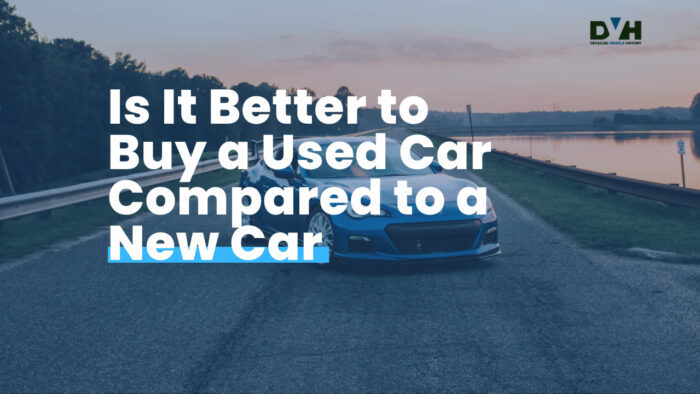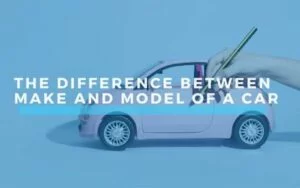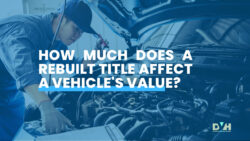If you are reading this article, then you must be in the automobile market searching for a car that can meet all your requirements. Generally, used cars are relatively cheaper than new cars although new cars come with the latest safety ratings and other features. Sometimes, making a choice between a used car and a new car can be difficult. In this article, you will learn about the pros and cons of buying a used car compared to a new car.
Pros and cons of buying a new car
Generally, before buying any product, individual circumstances and priorities have to be checked and then you can reach a decision. In this section, we will look at some pros and cons to consider when deciding to buy a new car. They are:
Pros of buying a new car
In this section, we will explain the pros of buying a new car:
Warranty
New cars are always sold out with a 36,000-mile or three-year warranty from the manufacturer and this provides protection against unexpected repairs. Some new vehicles even offer a ten-year warranty, to know more about this you can check warranty by vin. This usually gives peace of mind and saves a lot of unnecessary money on repairs. Usually, warranties vary in length of coverage and the items covered. This is one of the reasons why the fine print should be read and understood before the new car is purchased. Keep in mind that regardless of new cars having warranties, it is important to note that new cars may still face problems.
Advanced features
New cars may come with advanced features that are not available on older models, such as advanced safety features, in-car entertainment systems, forward collision warning, lane departure warning systems, automatic emergency braking, pedestrian detection, blind spot monitoring, lane keep assist, and others.
Customization
With a new car, you may be able to make some customization to your taste. For example, you may be able to choose the color, trim level, and options. It’s also important to understand that certain customization options may not be available for your car and you may consider checking out another manufacturer.
Quality
New cars are what they are, “new”. It is therefore expected that a new car should be in excellent condition, with no traces of wear and tear. A high-quality car is typically made of durable materials and is built to last. It should be reliable and should perform quite well over time, with minimal maintenance and repair needs.
Financing options
Liens, loans, and leases are usually more readily available for new cars, and the interest rates may be lower and financing will be easier.
Selection
There is usually a wider selection of new cars available, which definitely gives buyers more options to choose from.
READ ALSO: How to Spot a Fake Window Sticker on a Vehicle
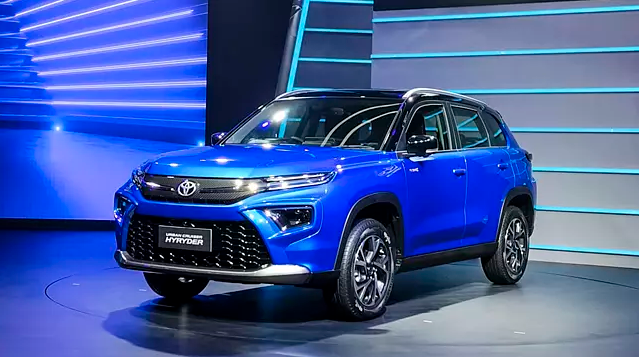
Cons of buying a new car
Let’s now look at some of the cons associated with buying a new car.
Cost
As you may have considered, the first downside of buying a new car is cost. New cars are typically more expensive than used cars, and this can be a significant financial burden, especially if you are financing the car. The average cost of a new car in the United States is around $50,000, according to money.com. However, this is just a rough estimate, and the actual cost of a new car can vary widely depending on factors such as the make and model, features, and location. Luxury cars and cars with advanced features tend to be more expensive, while more basic models may be less expensive. The cost of a new car can also vary depending on where you live, as prices may be higher in certain areas due to factors such as demand and taxes.
Depreciation
Depreciation is the decrease in the value of an asset or product over time. In the context of cars, depreciation refers to the loss of value that a car experiences as it gets older. New cars tend to depreciate more quickly than used cars, as they experience an unimaginable drop in value as soon as they are driven off the lot.
Limited availability
With new cars, there may be limited availability of certain makes and models of new cars due to some reasons. For example, a particular model may be in high demand, directly leading to a shortage of supply. Or, a manufacturer may only produce a limited number of a certain model each year, which will also lead to shortages when the demand is high. If a new car you are interested in is in short supply, you will have to wait longer to get it or you could pay a premium to get it sooner. Alternatively, you may try visiting a different dealership or location to find the car you want.
Financing
Financing a new car can be more expensive due to higher interest rates and fees.
Hidden costs
Sales tax, registration fees, and insurance, are some of the hidden costs that are usually associated with new cars vs used cars.
Technological obsolescence
New cars may come with advanced technology that can become outdated quickly. This can reduce the value of the car over time.
Lack of history
Getting a new car doesn’t give you the opportunity to understand the potential issues with the car because there is no car history, yet. Is it better to buy a used car compared to a new car? We can’t conclude just yet as we haven’t seen the pros and cons of buying a used car.
Pros and cons of buying a used car
We have seen the pros and cons of buying a new car, now we will examine the pros and cons of buying a used car.
Pros of buying a used car
Are you still asking if you should buy a new car or a used car? Then keep reading because, in this section, you will learn the pros of buying a used car. They are:
Cost
Used cars are generally less expensive than new cars. If you are working with a budget and you don’t want to spend money, choosing to buy a used car would be the best option for you.
Depreciation
New cars tend to depreciate in value quickly, often losing a significant amount of value as soon as they are driven off the lot. Used cars, on the other hand, have already gone through this initial period of depreciation, so their value may not decrease as much over time. This can make a used car a better investment in the long run.
Condition
While it’s possible to find a used car that is in poor condition, it’s also possible to find a used car that is in good condition and has lower mileage than a new car. Knowing the car’s condition before purchase would help you make an informed decision that could get you a used car that has a better value than a new car.
How can you get the history of a vehicle? Through the car’s VIN. With the vehicle identification number (VIN) of any car, you can track its accident records, mileage, auction records, maintenance records, manufacturer’s recalls, and basically everything the vehicle has been through since its first owner. With Detailed Vehicle History, you can also get the vehicle history report of classic vehicles and we recommend that the Vehicle history report is generated before any purchase. Visit this page to generate one now.
Selection
There is often a wider selection of used cars available, which can give you lots of options to choose from. If you require a specific make and model or if you have specific requirements or preferences, buying a used car would be advisable because, with used cars, you are given the opportunity to choose from a wide range of vehicles.
Insurance costs
Insurance costs for used cars are lower than for new cars, as used cars are typically worth less than new cars. This can save you money on insurance premiums over time. In some cases, for example, an eight-year-old car would be 25% cheaper to insure compared to new cars.
No hidden costs
With a used car, you don’t have to worry about hidden costs such as sales tax, registration fees, and other fees that may be associated with buying a new car.
READ ALSO: Detailed Vehicle History Vs Carfax: What are the Differences?
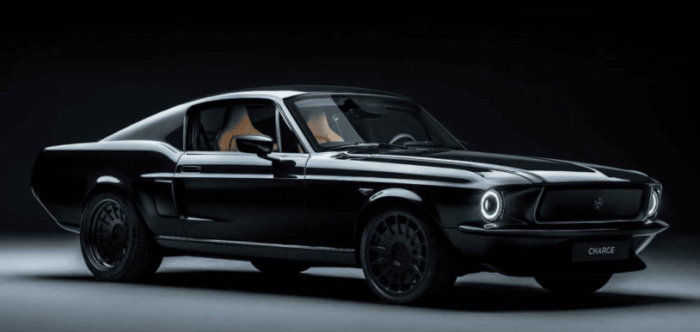
Cons of buying a used car
Some of the cons of buying a used car are:
Condition
It’s very possible to find a used car that is in good condition, but that doesn’t take away the possibility of ending up with a used car that has a lot of wear and tear and one that may have underlying issues that may not be so obvious. This can lead to unplanned repairs and maintenance costs, which can be frustrating and costly.
Warranty
Used cars do not come with a warranty, which means that when something goes wrong with the car, you will be fully responsible for paying for any repairs or maintenance. This can be a significant financial burden, especially if you are on a tight budget.
Depreciation
While a used car compared to a new car may not depreciate quickly, it can still lose value over time due to wear and tear and other factors. This can affect the car’s value if you plan to resell it in the future.
Customization
Unlike new cars, with used cars you do not have the luxury of customizing your preferred car.
Higher Interest Rates
Financing a used car compared to a new car usually comes with higher interest rates. Lenders may view used cars as having a higher risk than new cars, as they may be more likely to experience problems or have a lower resale value. This can make lenders more cautious about lending on used cars, which may result in higher interest rates. The condition of the vehicle and age increases the risk of financing a used car, and this translates into higher interest rates.
Buying a used car can be a good alternative to buying a new car, as it can be less expensive and may experience less depreciation in value. However, it’s important to carefully research the car’s history and condition to ensure you are getting a good value. Used cars may also come with fewer warranties or financing options, and they may be more prone to problems as they get older. On the other hand, buying a new car can provide the peace of mind of a full warranty and the latest features and technology. However, new cars are typically more expensive and tend to depreciate in value quickly.
We would recommend that you weigh your options and consider your budget, needs, and priorities carefully when deciding between buying a new car or a used car.

